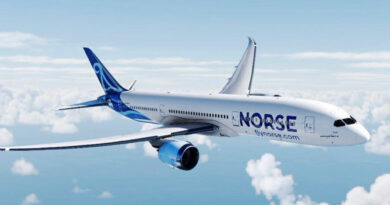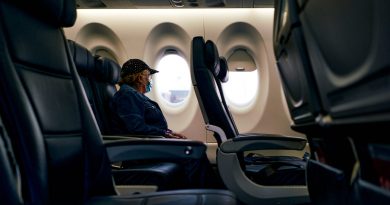DOT cracks down on airlines that broke refund rules during the pandemic: Travel Weekly
The Transportation Department on Monday imposed a total of $7.25 million in fines on six airlines for failing to comply with customer refund requirements over the course of the pandemic.
Fines were issued to Frontier Airlines and five foreign carriers: Air India, TAP Portugal, Aeromexico, El Al and Avianca.
In addition, the DOT said that its enforcement proceedings against those six carriers led to the airlines eventually paying out more than $600 million in refunds that had previously been held back from customers.
“Our overall objective is to make sure passengers get their money back,” DOT secretary Pete Buttigieg said. “We know that these enforcement actions have contributed to that happening in the case of these six airlines.”
Buttigieg added that the DOT is considering ratcheting up fine amounts to serve as a deterrent in the future.
- Related: DOT proposes to give flyers more opportunities to get a refund
Air Canada has company
A rash of flight cancellations early in the pandemic brought a massive surge in consumer complaints to the DOT related to unpaid refunds. Under federal law, airlines are required to provide refunds, when requested, for flights they cancel or significantly delay.
Complaint levels have dropped since that time, but remain elevated this year compared to before the Covid-19 pandemic. During the first six months of this year, the DOT received 10,089 refund-related complaints, up from 750 during the first half of 2019 but down from 56,326 during the chaotic first half of 2020.
Prior to Monday, only Air Canada had received a fine from the DOT for pandemic-time refund law violations. Under a settlement agreement last November, the DOT imposed a $4.5 million fine on the carrier, of which Air Canada paid $2 million. The remaining $2.5 million was abated in consideration of refunds that Air Canada provided to passengers who chose not to travel even though their flights were not canceled.
Frontier Airlines assessed the largest penalty
Of the six airlines the DOT fined on Monday, the largest penalty, $2.2 million, is being imposed on Frontier. The DOT also required the discount carrier to issue $222 million in refunds to customers.
Blane Workie, assistant general counsel for the DOT’s Office of Aviation Consumer Protection, said that in March 2020, Frontier altered how it defined a significant schedule change to exclude all itinerary changes in which the customer was still offered the opportunity to fly on the planned day of travel. Up to that point, Frontier had defined a significant schedule change as three hours or later. The carrier also made the new definition retroactive to already purchased tickets.
The result was a large swath of Frontier flyers who were denied refunds until the DOT stepped in, Workie said.
“I can certainly tell you that Frontier would not have provided these refunds to tens of thousands of passengers if the DOT had not been involved,” she said.
In a statement Monday, Frontier said that it had issued more than $92 million in refunds and redeemed travel vouchers to customers who voluntarily canceled nonrefundable tickets during the pandemic and were not entitled to a refund under U.S. law.
“In addition, the company provided over $2.7 million in refunds by voluntarily applying a more generous definition of a significant delay than was in effect at the time for customers who booked and purchased their tickets between March 25 and Oct. 27, 2020,” the carrier said. “These goodwill refunds of nearly $100 million demonstrate Frontier’s commitment to treating our customers with fairness and flexibility.”
Frontier said that under the consent order it has entered into with DOT, it will pay $1 million out-of-pocket, while the remaining $1.2 million of the fine will be credited to the carrier as a goodwill refund.
Among the airlines fined on Monday, Air India received the second largest penalty at $1.4 million. The carrier paid $121.5 million in required refunds to customers.
TAP Portugal was fined $1.1 million and paid $126.5 million in required refunds. Aeromexico was fined $900,000 and paid $13.6 million in required refunds. El Al was fined $900,000 and paid $61.9 million in required refunds.
Avianca was fined $750,000 and paid $76.8 million in required refunds.
A record year for aviation fines
In total this year, the Office of Aviation Consumer Protection has assessed $8.1 million in civil fines, its largest total ever.
The DOT has not yet revealed how much of those remaining five fines will be assessed in cash and how much in goodwill credits for refunds provided. Those figures will become public shortly when the department posts each of the consent orders on Regulations.gov.
In an email, the department explained that it uses those credits to entice airlines to provide refunds to more customers than they are required to under the law, such as flyers who voluntarily canceled their flights during the pandemic.
Workie said the DOT initiated enforcement action against the five foreign carriers for long delays in complying with refund requirements, even after the department issued enforcement notices on the matter in April 2020 and again in May 2020. For example, she said, Aeromexico adhered to a policy in which it wasn’t providing refunds until a year after receipt of a refund request.
Buttigieg said the DOT has more enforcement actions related to refunds underway, and that additional fines might be imposed. None of those additional actions, however, will involve another U.S. carrier, though some of the largest U.S. airlines have been the subject of many refund-related complaints during the pandemic.
United Airlines avoided penalty by paying refunds
United was a particular target of consumer ire in the early pandemic. The carrier was the subject of more than 8,000 refund-related complaints to the DOT during the first half of 2020, more than double Air Canada, which generated the second most such complaints.
Workie said that United and other U.S. airlines won’t be fined because they quickly began providing refunds as required after the DOT issued those April 2020 and May 2020 enforcement orders.
“Our focus has been on making sure the money is provided to consumers as quickly as possible,” she explained.
Source: Read Full Article



